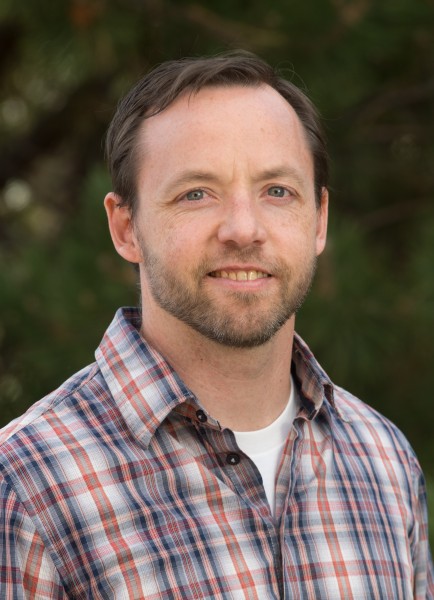Professor
About
Role:
FacultyPosition:
- Professor
Concentration:
- Environmental
- Macroeconomics
- Ecological and Resource Economics
- Economics of Climate Change
Department:
- Economics
Education:
- Ph.D. Economics, 2009, University of Wisconsin--Madison
Curriculum Vitae:
Biography
Dr. Iverson is an environmental economist and macroeconomist who uses applied theory and numerical methods to study issues in the economics of climate change and other environmental policy problems. In a recent paper, he explores options for using a ``two-tier climate club'' to support high levels of global carbon abatement in an international environmental agreement. He is also working on a macroeconomic analysis of the carbon footprint from cryptocurrency mining. During the pandemic, he wrote multiple papers on the problem of "optimal social distancing", and co-taught a course on the Economics of COVID-19 that was featured in The New Yorker and The Denver Channel. He also teaches graduate and undergraduate courses in environmental economics, including a senior seminar on the economics of climate change, and a graduate course in macroeconomics. Recent research was featured on Confessions of a Supply Side Liberal, The Source, and The Berkeley Rauser.
Publications
T. Iverson, L. Karp, A. Peri (2022): "Optimal Social Distancing and the Economics of Uncertain Vaccine Arrival," Journal of Public Economic Theory, forthcoming.
T. Iverson and L. Karp (2021): "Carbon Taxes and Commitment with Non-Constant Time Preference," Review of Economic Studies, 88(2) 764-799.
Iverson, T., & Barbier, E. (2021). “National and Sub-National Social Distancing Responses to COVID-19,” Economies, 9(2), 69.
E. Barbier, J. Burgess, T. Iverson (2020): "Are Sub-National Agreements for Carbon Abatement Effective?" Energies, forthcoming.
S. Zahran, T. Iverson, S. McElmurry, and S. Weilar (2019): "Hidden Costs of Fire Non-Suppression in Detroit: Evidence from a Natural Experiment in Devil's Night," Ecological Economics, 157, 266-277.
H. Cutler, J. Hess, T. Iverson, D. Manning (2018): "Uncertainty, Learning, and Local Opposition to Hydraulic Fracturing," Environmental and Resource Economics, forthcoming.
E. Barbier and T. Iverson (2018): “There are better ways to foster solar innovation and save jobs thanTrump’s tariffs.” The Conversation, January 22, 2018. https://theconversation.com/there-are-better-ways- to-foster-solar-innovation-and-save-jobs-than-trumps-tariffs-90532
S. Zahran, T. Iverson, S. McElmurry, S. Weiler (2017): "The Effect of Leaded Aviation Gasoline on Blood Lead in Children," Journal of the Association of Environmental and Resource Economics, 4(2), 575-610.
C. Hannum, H. Cutler, T. Iverson & D. Keyser (2017): "Estimating the implied cost of carbon in future scenarios using a CGE model: The Case of Colorado." Energy Policy, 102, 500-511.
E. Barbier and T. Iverson (2017): “Better ways to foster solar innovation and save jobs.” The Conversation, December 21, 2017. https://theconversation.com/better-ways-to-foster-solar-innovation- and-save-jobs-87481
T. Iverson, S. Denning, S. Zahran (2015): "When the Long Run Matters: The Joint Effect of Carbon Decay and Discounting,''
Climatic Change, 129: 57-72.
S. Zahran, T. Iverson, S. Weilar, T. Underwood (2014): "Evidence the Accuracy of Self-Reported Lead Emissions Data Improved: A Puzzle and Discussion,"
Journal of Risk and Uncertainty 49:235-257.
T. Iverson (2013): "Minimax Regret Discounting," Journal of Environmental Economics and Management, 66(3):598-608.
T. Iverson (2012): "Communicating Trade-offs Amid Controversial Science: Decision Support For Climate Policy," Ecological Economics 77: 74-90.
C. Keske, S. Evans, and T. Iverson (2012): "Total Cost Electricity Pricing," Electricity Journal 25(2): 7-15.
T. Iverson and C. Perrings (2011): "Precaution and Proportionality in the Management of Global Environmental Change," Global Environmental Change 22(1):161-177.
C. Bond and T. Iverson (2011): "Modeling Information in Environmental Decision Making," Western Economic Forum 10(2):33-49.
J. Liu, A. Rinzler, H. Dai, J. Hafner, K. Bradley, P. Boul, A. Lu, T. Iverson, K. Shelimov, C. Huffman, F. Rodriguez, Y. Shon, T. Randal, D. Colbert, R. Smalley (1998): "Fullerene Pipes," Science 280(5367):1253-1256.
Working Papers
Advancing Global Carbon Abatement with a Two-Tier Climate Club, July 2022. CESifo Working Paper No. 9831.
Protecting the vulnerable during a pandemic with uncertain vaccine arrival and reinfection, July 2020. With L. Karp and A. Peri. Working paper, SSRN #3648714.
National and Sub-National Social Distancing Responses to COVID-19, July 2020. With E. Barbier. CESifo Working Paper No. 8452.
Burn Coal? The Supply-Side Case for Carbon Capture and Storage, October 2019. Working paper.
Climate Policy and the Equilibrium Rate of Interest, June 2016. With Elisa Belifiori. Working paper.
